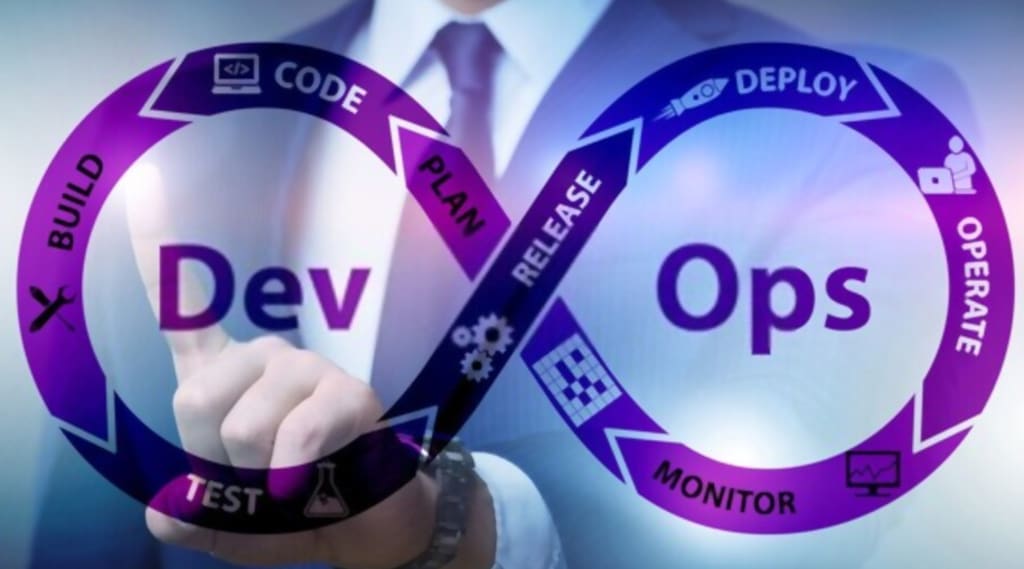The What & Why Of DevOps
What is DevOps, and why is it important for your organization to understand and implement? Here we will provide a comprehensive explanation of what DevOps means, and explore why DevOps principles are crucial for enterprise organizations of all sizes.

As more organizations move towards Digital Transformation, to respond to a changing industry environment, businesses need to quickly develop IT systems and services while maintaining the quality and reliability of those services. Creating new digital products and user experiences necessitates an environment where different teams can come together to fail fast, prove quickly, and learn every step of the way.
DevOps has helped several organizations successfully integrate business users, developers, security engineers, test engineers, and system administrators into one workflow that is focused on meeting customer requirements.
The Two Worlds
The Modern Technology environment is primarily made up of two critical parts; Development & Operations. The Development wing works on creating new technology solutions that can help a business respond well to the changing landscape. The ‘operations’ part is concerned with maintaining a stable and efficient IT infrastructure that continuously supports the company.
Though these two parts are pretty much interdependent and should ideally work in sync, they often work in isolation. The difference in work-practice of the two parts also makes it rather difficult for them to work collaboratively. For example, the development team focuses on creating new products quickly, embracing some risk that directly affects the stability. The operations team is risk-averse; they love stability. Their tendency to slow things down to maintain stability can ultimately infuriate the development team. This leads to a dysfunctional work environment and missed business goals.
DevOps- The Unison
DevOps bridges the gap between these two teams that have historically worked in silos. DevOps is a practice and culture that intends to unify the development and operation environments through seamless communication, collaboration, and integration between both. It is a set of practices that automate and integrate the processes between software development, and IT teams to build, test, and release software faster and more reliably.
But DevOps extends beyond the realm of software developers and IT operations. For a broader understanding, the ‘Dev’ part can be inclusive of all the people involved on the project side. That includes software developers, supplier stakeholders, business, and the end-user. On the other hand, ‘ Ops’ would represent the people involved in managing those products and services.
DevOps Lifecycle – The Three Way
DevOps essentially works as a continuous cycle, which is why an infinity loop is used to demonstrate the various phases of the DevOps lifecycle and how all the phases relate to each other. At first, it might appear that the flow from the phases is sequential; the loop signifies the necessity for iterative improvement and continuous collaboration throughout the entire lifecycle.
DevOps aims to create a culture where people share ideas and issues. This helps to improve communication & collaboration and allows organizations to improve.
There are three prescriptive steps by which an organization can apply DevOps practices. These steps are also referred to as DevOps principles
- The First Way (Flow): Understanding and increasing workflow (from left to right).
- The Second Way (Feedback): Creating short feedback loops that facilitate continuous improvement (from right to left).
- The Third Way (Continuous experimentation and learning): Creating a culture that promotes experimentation, risk-taking, learning from failure, and understanding that repetition and practice are necessary for gaining mastery of something.
DevOps extends Agile methodology in terms of the principles as DevOps can provide a practical extension for the current agile projects. For example, as DevOps emphasizes more on the collaboration and communication between developers and operators rather than tools and processes, it can achieve agile goals to reduce team working latency and extend agile principles to the entire software delivery pipeline.
Conclusion
With every organization increasingly becoming digital, the agility of the IT systems has become critical to the life and strength of a company. DevOps as a movement blends psychology, sociology, technical management, automation, security, and practices such as lean and agile to optimize an organization’s ability to thrive in the digital world.
Siyana Info Solution’s DevOps services help you create a Continuous Delivery system, realize better throughput, build resilient systems, and achieve faster time to market. Our DevOps services help bridge the gap between IT and the broader business by leveraging the full benefits of Cloud and DevOps. Contact us today for more.





Comments
There are no comments for this story
Be the first to respond and start the conversation.